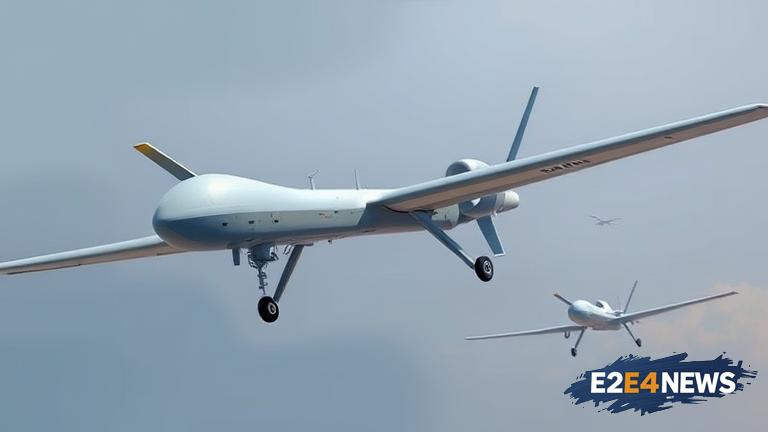The US military has been facing criticism over a recent drone strike in Somalia, which is believed to have killed several al-Shabaab militants. However, the strike has also raised concerns about the potential for civilian casualties and the legitimacy of the attack. The US Africa Command (AFRICOM) has confirmed that the strike was carried out in support of Somali government forces, who are battling the al-Qaeda-affiliated group. The strike is the latest in a series of US military operations in Somalia, which have been ongoing since 2007. The US has been providing military support to the Somali government, including training and advising Somali forces, as well as conducting drone strikes against al-Shabaab targets. The US military has stated that the strike was carried out in self-defense, after al-Shabaab militants attacked Somali government forces. However, many have questioned the legitimacy of the strike, citing concerns about the potential for civilian casualties and the lack of transparency surrounding US military operations in Somalia. The Somali government has welcomed the US support, but has also called for greater caution to be exercised in order to avoid civilian casualties. The US military has stated that it takes all possible precautions to avoid civilian casualties, but has also acknowledged that mistakes can occur. The strike has also raised concerns about the broader US military strategy in Somalia, with many questioning whether the US is taking a sufficient long-term approach to addressing the underlying causes of instability in the country. The US has been criticized for relying too heavily on drone strikes, which can create resentment and fuel further instability. The US military has also been accused of lacking transparency and accountability in its operations in Somalia, with many calling for greater oversight and scrutiny. The strike has also highlighted the ongoing challenges facing the Somali government, which is struggling to assert its authority and provide basic services to its citizens. The al-Shabaab insurgency has been ongoing for over a decade, and has caused widespread instability and humanitarian suffering. The US military has stated that it is committed to supporting the Somali government in its efforts to defeat al-Shabaab, but has also acknowledged that the challenge will require a sustained and long-term effort. The strike has also raised concerns about the potential for blowback, with many warning that the US military’s actions in Somalia could fuel further resentment and instability. The US military has stated that it is taking all necessary precautions to avoid civilian casualties, but has also acknowledged that the risk of mistakes can never be entirely eliminated. The strike has also highlighted the need for greater international cooperation and support for the Somali government, which is struggling to address the underlying causes of instability in the country. The US military has stated that it is working closely with international partners to support the Somali government, but has also acknowledged that more needs to be done to address the root causes of the conflict. The strike has also raised concerns about the potential for the conflict to spread to other parts of the region, with many warning that the instability in Somalia could have far-reaching consequences. The US military has stated that it is committed to supporting regional stability and security, but has also acknowledged that the challenge will require a sustained and long-term effort. The strike has also highlighted the need for greater transparency and accountability in US military operations in Somalia, with many calling for greater oversight and scrutiny. The US military has stated that it is committed to transparency and accountability, but has also acknowledged that more needs to be done to address concerns about civilian casualties and the legitimacy of US military operations in Somalia.
